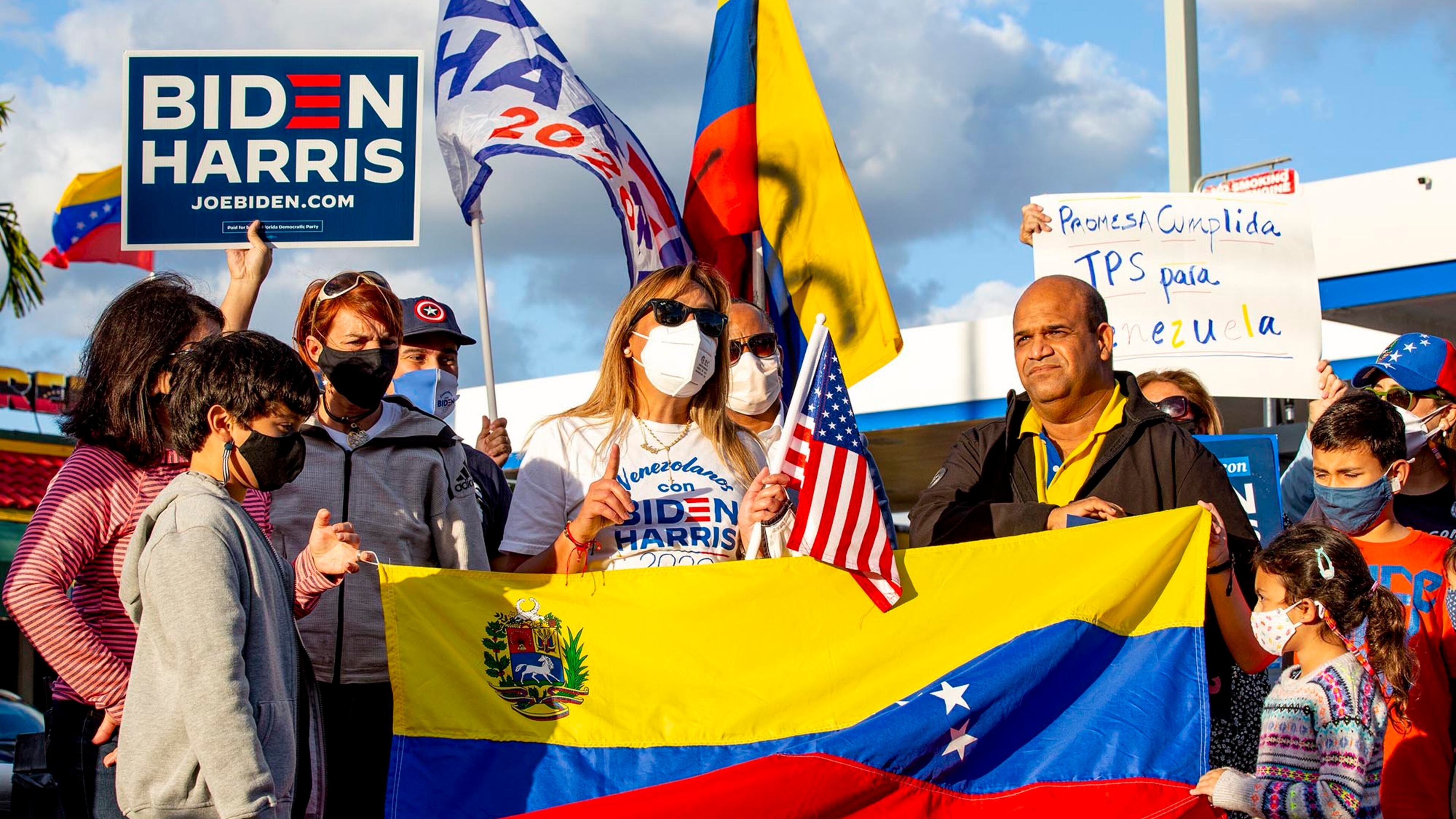Advocates mobilize to help Venezuelans in Ga. file for Temporary Protected Status

Venezuelans in Georgia, and across the country, now have more time to apply for humanitarian protection in the U.S.
On Aug. 3, the Department of Homeland Security announced that the deadline for Venezuelan exiles to apply for Temporary Protected Status (TPS) was pushed back a year to September 2022. When the Biden administration granted the TPS designation in March — in recognition of untenable living conditions under President Nicolás Maduro’s government — Venezuelans residing in the U.S. had 180 days to sign up. Now, they will have 18 months.
The extension is welcome news for local advocates working to get Georgia’s Venezuelan community educated about TPS and the benefits it confers, which include work permits and protection from deportation. TPS has historically been granted to immigrants living in the U.S. from countries affected by natural disaster, armed conflict, or other conditions that make it unsafe to return.
“This additional year is a great opportunity, because it really gives us time to organize and create more outreach material and make sure that the community has all of the resources they need to file,” said Pedro Viloria, with the Latino Community Fund.
Viloria is familiar with metro Atlanta’s Venezuelan enclave: he is Venezuelan himself, and his family runs a Venezuelan arepas restaurant in Duluth. He says conversations with restaurant patrons reveal just how many doubts and misunderstandings about TPS remain in the community.
“We’ve really seen that the [Venezuelan] community, at least in Georgia, has not received a lot of the resources, a lot of the information to fully understand how this process works,” he said. “So we are very excited to have this extra time.”
With the COVID-19 pandemic and ensuing recession disproportionately impacting immigrant workers’ employment status, the extra year could also give Venezuelans more time to gather the necessary funds to cover TPS application costs, according to immigration attorney Michael Urbina. For most applicants, the filing fee is $545.
After Florida and Texas, Georgia is home to the third-largest group of unauthorized Venezuelan immigrants eligible for TPS, according to estimates from the Center for Migration Studies, a nonpartisan think tank.
TPS misconceptions
Among the factors that keep some Venezuelans from filing for TPS, Urbina says, is concern that the government won’t renew the protected status beyond its initial designation period, currently slated to end on Sep. 9 2022. The concern is valid: TPS is meant to be temporary. Critics have warned against allowing the program to lead to a more permanent residency for recipients.
But the reality is that many countries’ TPS designations get renewed with regularity, according to Urbina.
“Unless the situation in Venezuela just completely magically improves by [September 2022], it will be extended beyond that point,” he said.
There are also worries among the community, advocates say, that filing for TPS could jeopardize separate applications for asylum, an immigration benefit that, unlike TPS, lays out a path to citizenship. In reality, immigrants with pending asylum claims as well as immigrants who are planning on applying for asylum in the future can also file for TPS, with no adverse effect on their case.
“If you apply for asylum and you get granted that status, that would be more permanent status in the U.S. but I also think it’s generally better to have more than one option,” said Nina Salazar, staff attorney at the Latin American Association. “I would really encourage immigrants who are in the process of the asylum application or thinking of applying for asylum to also submit their TPS applications as well.”
Both Salazar and Urbina indicated that approval rates for TPS are higher than those for asylum. That’s especially true for asylum cases that fall under the jurisdiction of Georgia’s immigration courts, which have some of the highest denial rates in the nation, according to data compiled by the Transactional Records Access Clearinghouse (TRAC), a nonpartisan research organization at Syracuse University. In the five-year period from 2015 to 2020, immigration courtrooms in Atlanta registered an average denial rate of 95.6%, compared to 50.1% in a city like Boston.
“[TPS] allows for Venezuelans to have a migration status here and to be present lawfully, so it really opens up a lot of doors and opportunities,” said Viloria. “This is really a big victory for the Venezuelan community and we want to make sure that everyone that qualifies for this opportunity has access to it.”
Who qualifies for Venezuelan TPS?
-Venezuelan nationals who can prove that they have continuously resided in the US since March 8, 2021
-All individuals applying for TPS must undergo security and background checks (those who have been convicted of a felony or two or more misdemeanors will be deemed ineligible)
Help with applications
To help Venezuelans in the metro Atlanta area file for TPS, The Latino Community Fund is co-hosting a free TPS clinic on Saturday, August 21 in Duluth at EPA! EAT AREPA!, 2870 Peachtree Industrial Blvd. Immigration attorneys will be on hand to help people with their applications from 9 AM to 1 PM. Appointments are required, and can be booked on UnidosGeorgia.com. To avoid becoming victims of immigration scams, United States Citizenship and Immigration Services (USCIS) advises TPS applicants to pursue legal assistance only from accredited providers.
Lautaro Grinspan is a Report for America corps member covering metro Atlanta’s immigrant communities.


